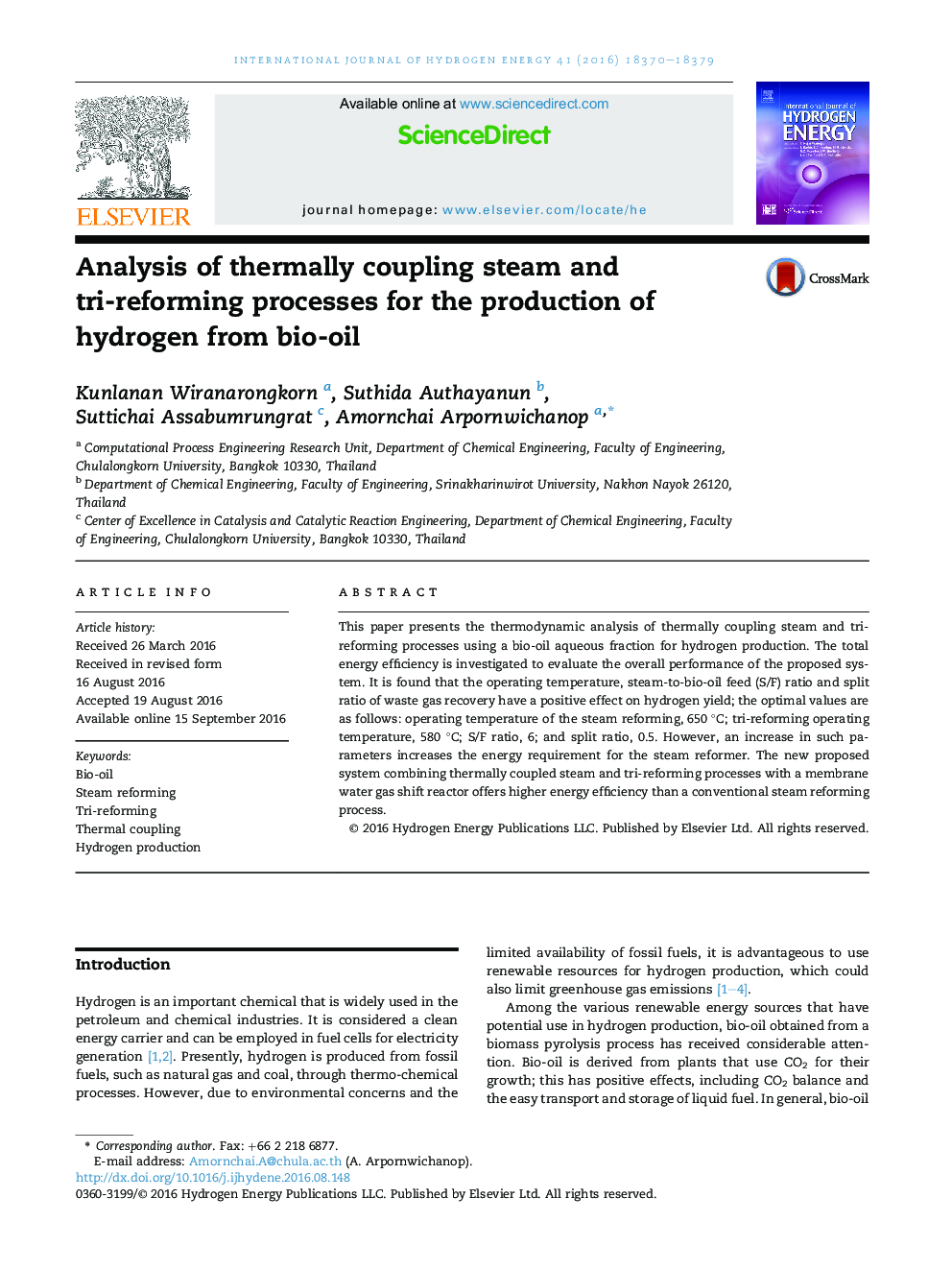| Article ID | Journal | Published Year | Pages | File Type |
|---|---|---|---|---|
| 5147386 | International Journal of Hydrogen Energy | 2016 | 10 Pages |
Abstract
This paper presents the thermodynamic analysis of thermally coupling steam and tri-reforming processes using a bio-oil aqueous fraction for hydrogen production. The total energy efficiency is investigated to evaluate the overall performance of the proposed system. It is found that the operating temperature, steam-to-bio-oil feed (S/F) ratio and split ratio of waste gas recovery have a positive effect on hydrogen yield; the optimal values are as follows: operating temperature of the steam reforming, 650 °C; tri-reforming operating temperature, 580 °C; S/F ratio, 6; and split ratio, 0.5. However, an increase in such parameters increases the energy requirement for the steam reformer. The new proposed system combining thermally coupled steam and tri-reforming processes with a membrane water gas shift reactor offers higher energy efficiency than a conventional steam reforming process.
Related Topics
Physical Sciences and Engineering
Chemistry
Electrochemistry
Authors
Kunlanan Wiranarongkorn, Suthida Authayanun, Suttichai Assabumrungrat, Amornchai Arpornwichanop,
